Stuck is a weekly serial appearing at 3QD every Monday through early April. The Prologue is here. The table of contents with links to previous chapters is here.
by Akim Reinhardt
 This song got caught in my head as I circled the country in my 1998 Honda. Leaving New York City, I drove west into the heart of America, up to the Dakotas, out to California, down the Golden State, and then back along the Southern route before angling northward to Baltimore. I saw nearly all the America you can see. But of course there’s not just one America. There are many.
This song got caught in my head as I circled the country in my 1998 Honda. Leaving New York City, I drove west into the heart of America, up to the Dakotas, out to California, down the Golden State, and then back along the Southern route before angling northward to Baltimore. I saw nearly all the America you can see. But of course there’s not just one America. There are many.
The environment shifts dramatically along the way. So too do the people. From densely packed cities to sparsely populated rural areas. From little towns dotting the countryside to sprawling suburbs that fade into forest or desert or grasslands. It is a vast expanse, the world’s third largest nation in both square mileage (behind Russia and Canada) and population (behind China and India). When I was a kid there were 200,000,000 people. Or so a Burger King commercial told us. Now we’re closing in on 350,000,000.
It takes all types. But of course some types get more attention than others. Mass media consistently highlight white people, the major exception being black entertainers (mostly athletes and singers) and criminals. Men continue to dominate positions of power and prestige. The coasts boast most of the population, and sneeringly refer to the middle as “fly over country.” And the cities and suburbs, home to the vast majority of Americans, largely ignore the small towns and rural areas that actually makeup most of the physical landscape.
My own life illustrates many of America’s different faces. Read more »

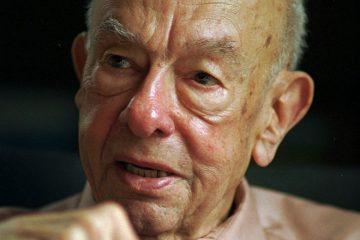 Willard Van Orman Quine is well known to the average analytic philosopher. True, he disdained much of the Pandora’s box of conceptual playthings often thought necessary for serious work in analytic philosophy nowadays, and his doctrines are thought to have been largely superseded. But he is treated by many – along with the earlier thinkers Gottlob Frege and
Willard Van Orman Quine is well known to the average analytic philosopher. True, he disdained much of the Pandora’s box of conceptual playthings often thought necessary for serious work in analytic philosophy nowadays, and his doctrines are thought to have been largely superseded. But he is treated by many – along with the earlier thinkers Gottlob Frege and  It took only a few seconds to spot one. Then another. As I walked into the small park around noon, dozens of rats could be seen scurrying in every direction. They dashed in and out of burrows scattered around the planting beds. They scampered between the safety of shrub cover and the trash bins containing a smorgasbord for them to feed on. They leaped on and off the unoccupied benches encircling the park. The rats of Churchill Square had returned.
It took only a few seconds to spot one. Then another. As I walked into the small park around noon, dozens of rats could be seen scurrying in every direction. They dashed in and out of burrows scattered around the planting beds. They scampered between the safety of shrub cover and the trash bins containing a smorgasbord for them to feed on. They leaped on and off the unoccupied benches encircling the park. The rats of Churchill Square had returned.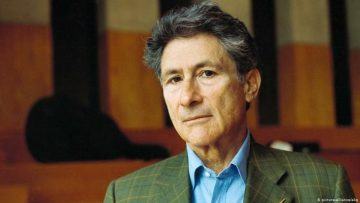
 There are people who believe that the political polarization now afflicting the United States might finally start to subside if Americans of both parties could somehow become more empathetic. If you’re one of these people, the American Political Science Review has sobering news for you.
There are people who believe that the political polarization now afflicting the United States might finally start to subside if Americans of both parties could somehow become more empathetic. If you’re one of these people, the American Political Science Review has sobering news for you.
 IT IS A TRUTH
IT IS A TRUTH 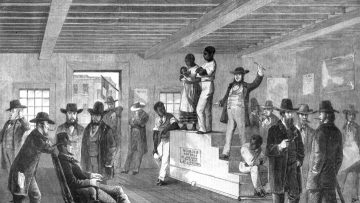

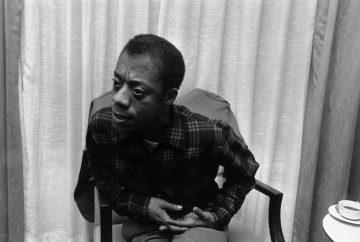 Laura Tanenbaum in Jacobin:
Laura Tanenbaum in Jacobin: Rohit De and Surabhi Ranganathan in NYT:
Rohit De and Surabhi Ranganathan in NYT: One night in 1953, the Reverend Billy Graham awoke at two in the morning, went to his study, and started writing down ideas for the creation of a new religious journal. Graham, then in his mid-thirties, was an internationally renowned evangelist who held revival meetings that were attended by tens of thousands, in stadiums around the world. He had also become the leader of a cohort of pastors, theologians, and other Protestant luminaries who aspired to create a new Christian movement in the United States that avoided the cultural separatism of fundamentalism and the theological liberalism of mainline Protestantism. Harold Ockenga, a prominent minister and another key figure in the movement, called this more culturally engaged vision of conservative Christianity “new evangelicalism.” Graham believed a serious periodical could serve as the flagship for the movement. The idea for the publication, as he later wrote, was to “plant the Evangelical flag in the middle of the road, taking a conservative theological position but a definite liberal approach to social problems.” The magazine would be called Christianity Today.
One night in 1953, the Reverend Billy Graham awoke at two in the morning, went to his study, and started writing down ideas for the creation of a new religious journal. Graham, then in his mid-thirties, was an internationally renowned evangelist who held revival meetings that were attended by tens of thousands, in stadiums around the world. He had also become the leader of a cohort of pastors, theologians, and other Protestant luminaries who aspired to create a new Christian movement in the United States that avoided the cultural separatism of fundamentalism and the theological liberalism of mainline Protestantism. Harold Ockenga, a prominent minister and another key figure in the movement, called this more culturally engaged vision of conservative Christianity “new evangelicalism.” Graham believed a serious periodical could serve as the flagship for the movement. The idea for the publication, as he later wrote, was to “plant the Evangelical flag in the middle of the road, taking a conservative theological position but a definite liberal approach to social problems.” The magazine would be called Christianity Today.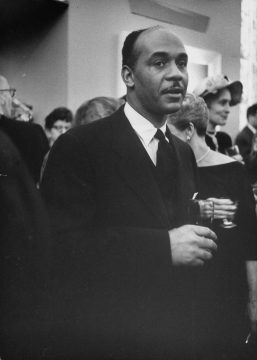 “Complexity” was the term that Ralph Ellison deployed most often to describe black life and culture. And it is the term best suited to convey the character of this brilliant, often disapproving and unsparing man. Decades before Toni Morrison’s “Beloved” and “Song of Solomon,” “Invisible Man” (1952) singularly defined the meaning of literary achievement. As a critic, Ellison was no less significant a thinker and stylist. Always, he was a philosopher of black expressive form and an astute cultural analyst.
“Complexity” was the term that Ralph Ellison deployed most often to describe black life and culture. And it is the term best suited to convey the character of this brilliant, often disapproving and unsparing man. Decades before Toni Morrison’s “Beloved” and “Song of Solomon,” “Invisible Man” (1952) singularly defined the meaning of literary achievement. As a critic, Ellison was no less significant a thinker and stylist. Always, he was a philosopher of black expressive form and an astute cultural analyst. Dear imagined future self,
Dear imagined future self, False words, phony videos, doctored photos, and violent content are regular features on the online ecosystem worldwide. India is no exception, where such content, which often attracts millions of views, has led to
False words, phony videos, doctored photos, and violent content are regular features on the online ecosystem worldwide. India is no exception, where such content, which often attracts millions of views, has led to  Accusations of antisemitism
Accusations of antisemitism